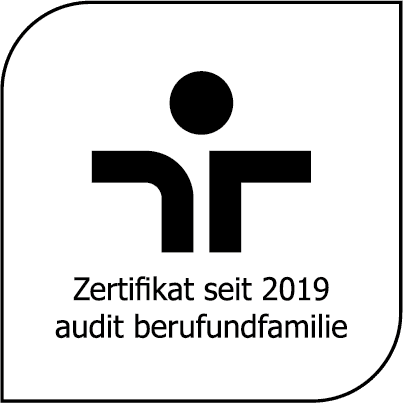Test instruments sorted
Contact person for the Open Test Archive
Gülay Karadere (Dipl.-Psych.)
Research Associate
guek@leibniz-psychology.org
VTT-TAB
Kurzskalen zur Erfassung von Vertrauen in der Psychotherapie
Short abstract
The VTT-TAB are designed to measure (1) confidence in the treating psychotherapist (SV-TAB, 14 items), (2) self-confidence in the psychotherapeutic setting (SVT-TAB, 12 items) and (3) confidence in the personal future through psychotherapy (ZUK-TAB, 10 items). They are based on the theoretical foundation of the model of trust triad (VTT) developed by Krampen (1997), which is based on the partial model of personality (HPP). Reliability: The one-dimensionality of the scales could be confirmed by means of the Rasch model. The internal consistency lies between Cronbach's Alpha = .88 and Alpha = .91. The selectivities of the items are above rit = .40 on all three scales. Validity: The scale intercorrelations are, in accordance with theory, at r = .58-.81. The construct validity is confirmed by the profile reliability with prof(rtt) = .63. The explorative principal component analysis suggests a two-factorial solution with 47.1 % variance elucidation. The VTT-TAB correlates with other relevant confidence scales. The external validity was checked and confirmed by calculations on the prognostic significance of the three confidence scales for the success of therapy using a sample of N = 203. Therapy-related confidence in the future represents the most variable predictor of symptom improvement.
Leibniz Institute for Psychology (ZPID). (2019). Open Test Archive: VTT-TAB. Kurzskalen zur Erfassung von Vertrauen in der Psychotherapie. Available at: https://www.testarchiv.eu/en/test/9006229
Citation
Hewig, M., Hank, P. & Krampen, G. (2011). VTT-TAB. Kurzskalen zur Erfassung von Vertrauen in der Psychotherapie [Verfahrensdokumentation und Fragebogen]. In Leibniz-Institut für Psychologie (ZPID) (Hrsg.), Open Test Archive. Trier: ZPID.
https://doi.org/10.23668/psycharchives.4575
Short information
Short Name VTT-TAB
English Name Short Scales to Assess Trust in Psychotherapy
Authors Hewig, M., Hank, P., Krampen, G.
Published in Test archive 2011
Copyright/Licence Copyright Authors; CC-BY-SA 4.0
Language versions deu
Construct Model of trust triad (VTT; Krampen, 1997)
Application age Adults
Item number 36 items
Subscales (1) Trust in the treating psychotherapist, (2) self-confidence in the psychotherapeutic setting, (3) trust in the personal future through psychotherapy
Application Time approx. 15 min.
Interpretation time No information.
Internal consistency: Cronbach's alpha = .88-.91. Profile reliability: prof(rtt) = .63.
Information on scale intercorrelations, two-factorial structure, convergent and predictive validity.
None; reference data: Means and standard deviations.
Applications Psychotherapy
Older versions
Version 1: https://doi.org/10.23668/psycharchives.405
There is no abstract in English available. Short information about the measure can be found under Overview. More can be found on the German pages.
There is no review in English available. Short information about the measure can be found under Overview. More can be found on the German pages.
First published in
Hewig, M., Hank, P. & Krampen, G. (2009). Rasch-basierte Prüfung von Kurzskalen zur Erfassung von Vertrauen in der Psychotherapie. Klinische Diagnostik und Evaluation, 2 (3), 175-193. PSYNDEX Dok.-Nr. 0222062
Feedback form
Feedback on the use of a procedure from the Open Test Archive of the Leibniz Institute for Psychology (ZPID) to the test author(s)
Contact information
Dr. Martina Hewig, Dipl.-Psych., Psychotherapeutische Praxis Dr. Löhr und Kollegen, Hauptstraße 51, D-97204 Höchberg
Prof. em. Dr. Günter Krampen, Emeritus, Universität Trier, Abteilung für Klinische Psychologie, Psychotherapie und Wissenschaftsforschung (bis 31.3.2016), Direktor des Leibniz-Instituts für Psychologie (ZPID) (bis 30.6.2017), D-54296 Trier
Dr. Petra Hank, Universität Trier, Fachbereich I - Psychologie, Universitätsring 15, D-54286 Trier

 Learn more about us!
Learn more about us! 
